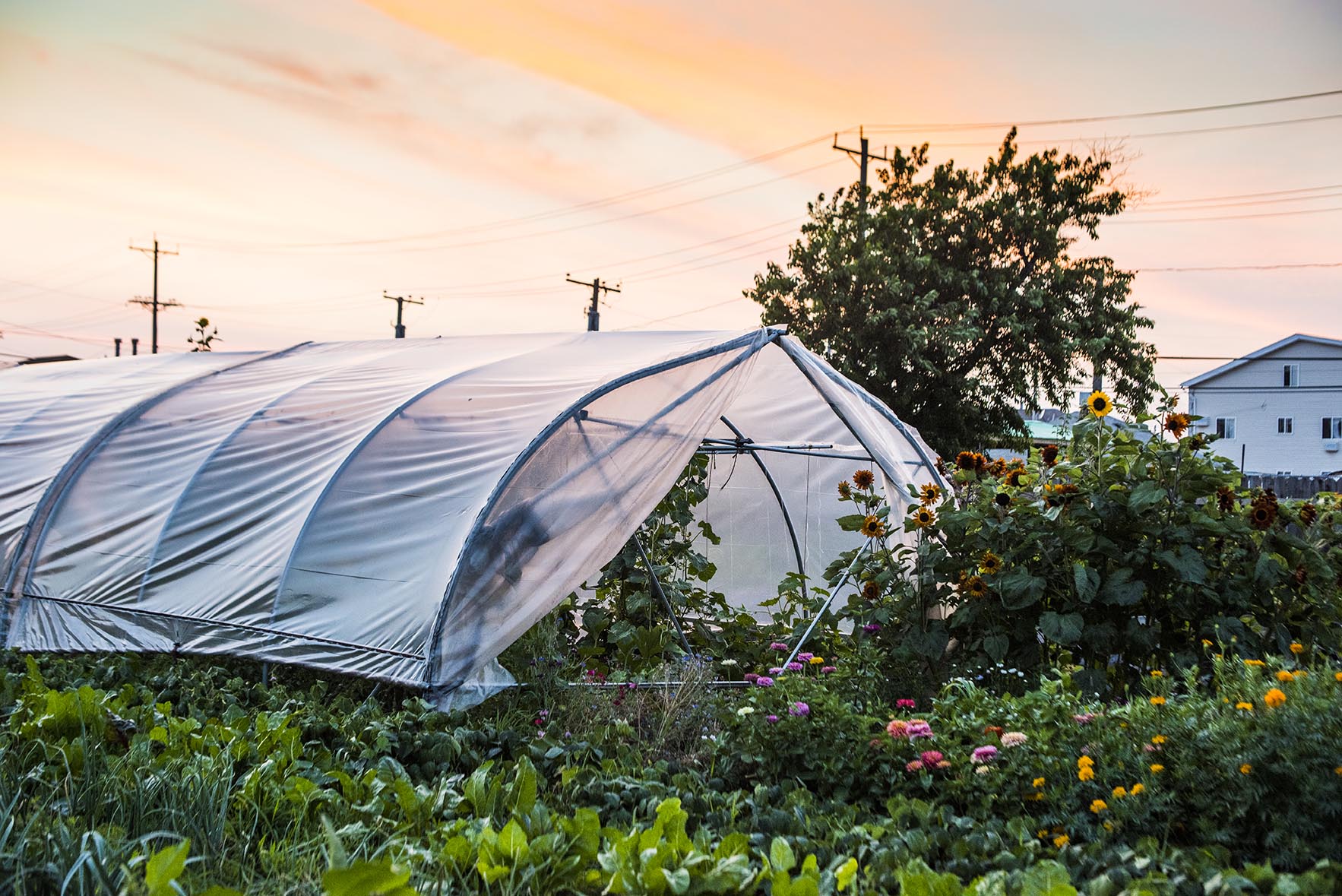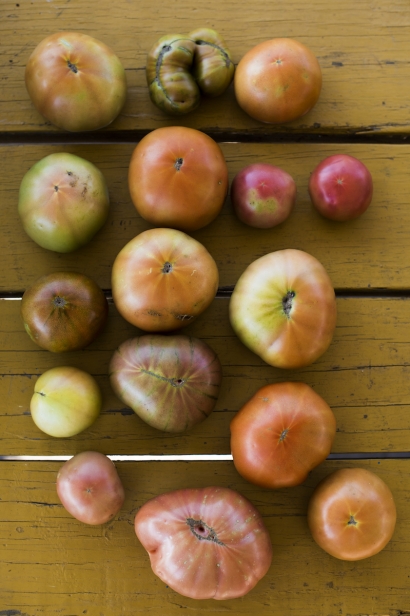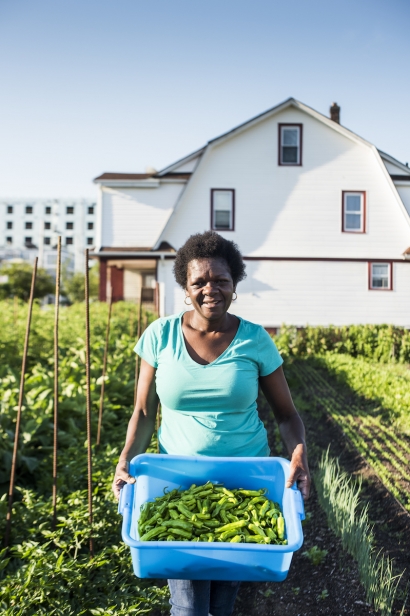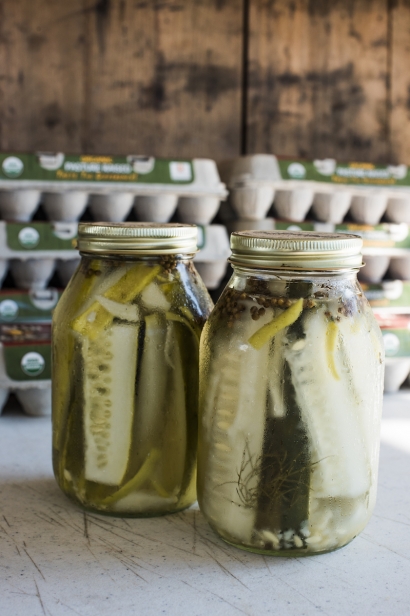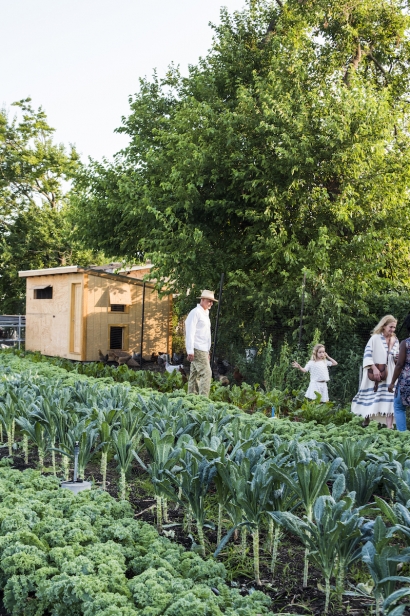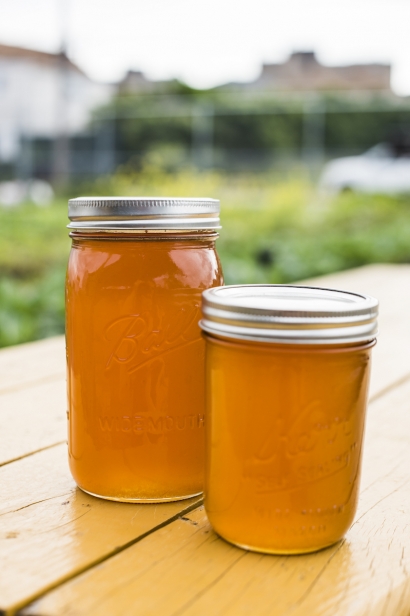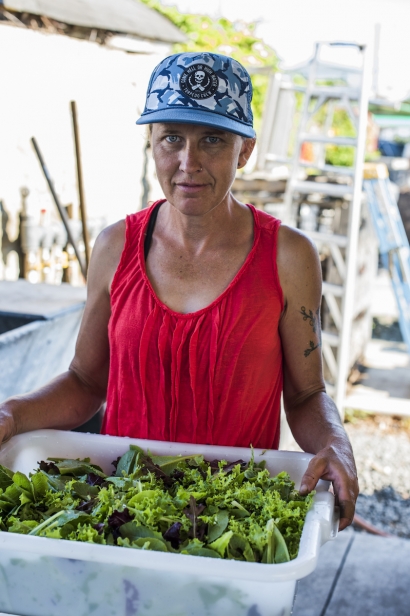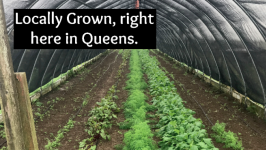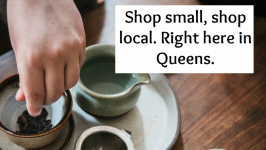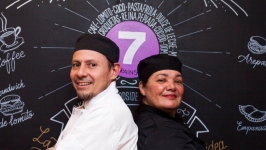Cultivating Community on a Farm by the Bay
If there’s anyone who can turn dog walking in a snowstorm into a job on an urban farm, it’s Heidi Woolever, one of the managers of Edgemere Farm. Most of us would be head down, minding our own business, but Woolever has one of the friendliest faces on the Rockaway Peninsula.
Woolever always wanted to move to New York City, but instead ended up as a schoolteacher in Washington, DC, after receiving her graduate degree from the University of New Hampshire. She figured that would be her urban experience. But DC had its issues, like the stark difference between the haves and have-nots, she said. “I want to live in a place with a good vibe. It stopped feeling like that after a while.” And it’s hard to imagine Woolever far from nature.
Woolever, 45, moved from DC to New England and Upstate New York before landing in Red Hook in February 2014 without much of a concrete plan. While walking her aging beagle in a snowstorm two days after moving, she struck up a conversation with Edgemere Farm’s founder, Matt Sheehan, 51, who was walking his pitbull. She joined the farm after that, soon to begin its fourth season of growing and selling fresh fruits and vegetables to Rockaway Peninsula’s residents. I arrived one Saturday in time to see her and two visitors corralling chickens beside the stand.
She kept a warm composure, her lightly weathered face smiling and unfrazzled as she answered questions about the produce from locals, hipsters and yoga moms. Woolever fit the professional farmer’s look to a T: a green down coat atop a blue T-shirt, worn cargo pants, boots and her new Edgemere Farm trucker hat. The crowd of chatting strangers gathered around her, which felt alien in a city known for interpersonal avoidance. They were talking about her recent makeover in Oprah Magazine.
“They take women in nontraditional places doing good for the community and give them a makeover,” she later told me. She laughed—red dresses don’t often appear in a farmer’s daily wardrobe. “It was this enormous deal to do this one photo.”
It makes sense that humble Woolever ended up feeding the people of the Rockaways. She grew up in Syracuse, New York. She visited a mechanized big dairy farm in grade school and didn’t like it at all. Instead, she imagined the idealized, pastoral kind of farming, though she didn’t have farming experience, said her sister Amy Woolever, a pediatrician at Elmhurst Hospital.
I told Heidi Woolever about a tiny yellow bird I’d seen during my farm visit and she perked—she thought she had seen the same bird before. She’s taking plant medicine classes—she loves her flora. “The main thing is just spending time with the plants,” she said. “They’ll teach you.”
So she became a farmer. She does that sort of thing. “The way she lives her life isn’t motivated by a lot of the things other people tend to get bounded by, like having job security and set income,” said Amy Woolever about her sister. “She’s willing to sacrifice a lot to follow her vision.”
Heidi Woolever moved to Maine to raise sheep with her now-ex-husband and then to another farm in the Catskills, but the lonely rural experiences brought her to New York. Plus, it was a place where her farming could have an impact.
“I read the article in the New York Times about this little girl who lived in a homeless shelter, one of a million four-part series on child poverty in New York,” she said, thumbing a tomato in the late afternoon sun. “I think she lived in one of the armories in Brooklyn and they described the yard as just dirt with nothing growing in it. I thought, ‘I could go and grow food in that yard. I could provide food to people in my immediate neighborhood and be helpful.’ That’s what I came to New York to do.”
Today, Edgemere Farm takes up a half-acre between Jamaica Bay and the Atlantic Ocean, three stops from the end of the A train line, beyond the furthest extent of the summertime beachgoer’s patience. It sits behind a chain-link fence situated beside manicured lawns, just blocks from New York public housing. Stripes of kale, eggplants and peppers line the plot in front of the main farm stand, a raised wooden platform beneath a corrugated metal roof. A painted shipping container topped with an apiary stores the equipment. A coop of 40 chickens sits in a corner next to a blue shed.
Sheehan set up the farm the previous summer using land that came available as part of former Mayor Michael Bloomberg’s anti-obesity campaign to bring affordable farm-fresh produce to high-need neighborhoods. Hurricane Sandy drew eyes to the Rockaway Peninsula, highlighting the neglected community as an appropriate place for the farm. Woolever manages the farm with Sheehan and grows relationships within the community.
“That’s Heidi's forte,” said Sheehan.
He’s not kidding. When we spoke one warm October day, she waved to every single passerby.
Woolever feels apprehensive about the farm’s future, given the state of politics and the Trump Administration’s propensity towards deregulation and climate-change denial. The USDA’s Special Supplemental Nutrition Program for Women, Infants and Children helps drive some traffic to her market; cutting it could prevent some from purchasing her affordable produce. And the environmental impacts of climate change could be huge for a farm on the Rockaway Peninsula.
“We’re barely above sea level. That’s probably the greatest threat we face,” she said.
Nevertheless, Heidi will probably stick around Rockaway for the long haul. She’s found and created community in the Rockaways, unlike Manhattan’s and Brooklyn’s bustle or Maine’s lonely rural distances.
“I would never want to live anywhere besides Edgemere.” Anywhere? She chuckled. “Except probably California.”
Heidi Woolever | @woolever
Rockaway Herbs | @rockawayherbs
Edgemere Farm | @edgemerefarm
Elmhurst Hospital


